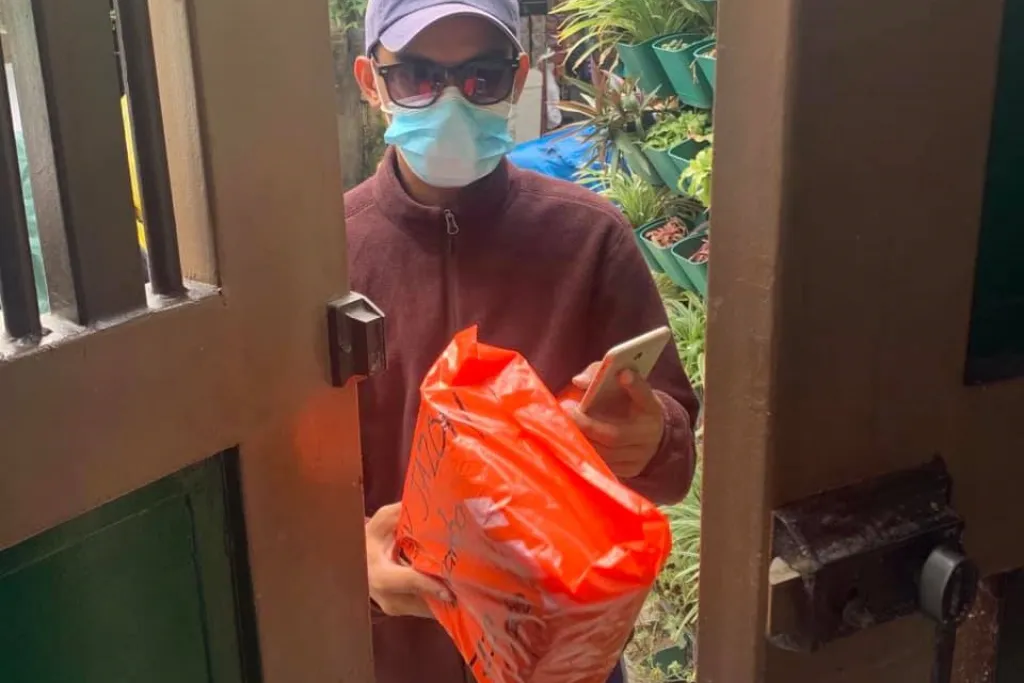The promise of new flavours beckons from Banawe.
The Cash-on-Delivery Scam and What You Can Learn From This Shopper’s Experience

Online shopping has become second nature to many Filipinos — from daily essentials to big-ticket items, everything can be delivered right to your doorstep. But with its growing popularity also comes new opportunities for scammers. One of the most alarming tricks that continues to circulate is the cash-on-delivery scam, which preys on unsuspecting shoppers at home.
In this scam, a shopper receives an unexpected package from a delivery rider and is asked to pay a hefty amount upfront. To make it look more legitimate, the parcel usually includes the recipient’s name and basic details.
Also read: How Far and How Much Can You Have Your Cargo Delivered in Luzon in 2021?
What usually happens
There could be countless cases of the cash-on-delivery scam in the Philippines. But one of the more notable ones was that of a netizen by the name of Jay Jazon on Facebook.
In his status update on 15 Mar 2021, Jazon shared his experience wherein he personally encountered one of these cash-on-delivery scammers. At around 2.30pm that day, he said that someone who claimed to be from a certain e-commerce platform arrived at his house with a parcel amounting to ₱3,499. It came in the company’s actual plastic wrap.

Except, it only contained his incomplete name and address details, unlike the usual parcel that also has the buyer’s contact number and barcode sticker. “I personally have multiple orders pending to be delivered, but I am always familiar with the amount, so then when he said ₱3,499, I’m like what? Not familiar,” Jazon shared.
Suspecting it was a cash-on-delivery scam, he immediately locked the door and informed his family. “My heart was racing by then kasi I’m familiar with the modus but I’m slightly uneasy na baka ‘yung scammer may PhD sa pagiging actual holdaper din kaya ayokong i-hand over pabalik yung parcel.”
Eventually, Jazon faced the rider once more and simply told him that he didn’t order the package. “He immediately replied ‘cancel na lang sir’ tapos he’s pretending to take a picture of me which is the protocol for online shopping so I took advantage and took a picture of him, too.”
Also read: Pinoy Online Shoppers Are Taking Their “Proof of Delivery” Photos to a New Level
Avoiding the cash-on-delivery scam
When the rider left, Jazon observed that he also didn’t have a motorbike of his own. It was only when he had walked some distance that he was able to get on one after he was picked up by another guy.
According to Jazon, the modus generally happens to households with several members who each have a history of ordering cash-on-delivery items. Because of the frequent deliveries, anyone from the house receives and pays for the items even if someone else from the house ordered them.

“Everyone in our family does online shopping and pays each other’s deliveries kahit na hindi na ini-inform sinong actual member of the family kasi sanay na kami whoever ang madatnan lang sa baba,” he added. This would make it easier for these scammers to exploit the non-ordering member and convince him or her to pay the balance.
To avoid scams when buying from online stores, it’s also a must to scan the package for inconsistencies from the usual parcels, especially if you’re receiving for someone else. These include searching for the barcode, name, and complete contact details. If possible, make it a habit to personally receive an item you ordered. If you know for sure that the parcel doesn’t belong to you or a household member, let the rider know.
Jazon ended his post by saying that he’s not generalising delivery riders. At the same time, he advised others to be wary of one’s or family’s online shopping behaviour which could make one the next target of the cash-on-delivery scam, or any other pandemic-related scams for that matter.
All images credited to Jay Jazon.
Published at
About Author
Joser Ferreras
Subscribe our Newsletter
Get our weekly tips and travel news!
Recommended Articles
10 Best Banawe Restaurants for a Mouthwatering Food Trip in QC 14 Best Credit Cards for Travel in the Philippines The only plastic we need for travel.
10 Commandments for Responsible Travel Flexing Spread the good word!
10 Tips for Planning Out-of-Town Trips During Typhoon Season Stay safe and travel well during the rainy season.
118 Kilos of Shabu Discovered on Remote Bataan Beach A quiet Bataan beach turned into a crime scene after police seized 118 kilos of shabu worth ₱802M, abandoned near a lighthouse.
Latest Articles
Bahong Sunflower Farm La Trinidad: Entrance Fees, Commute Guide, and Travel Tips This is the perfect spot for romantic dates or photoshoots!
The Cheapest Places to Explore in the Philippines Travel without overspending
8 Reasons Why Travelling Domestically Can Be More Expensive Than Internationally Why a Local Getaway Can Cost More Than Flying Abroad
PH Travel Agencies Admit It’s More Expensive to Travel Locally Than Abroad Find out how the PTAA Travel Tour Expo 2026 aims to make local trips affordable again.
Your Valid Philippine Passport Is Now Illegal To Use If You Are A Naturalized US Citizen Naturalized in the US? Your old Philippine passport is now legally void.

